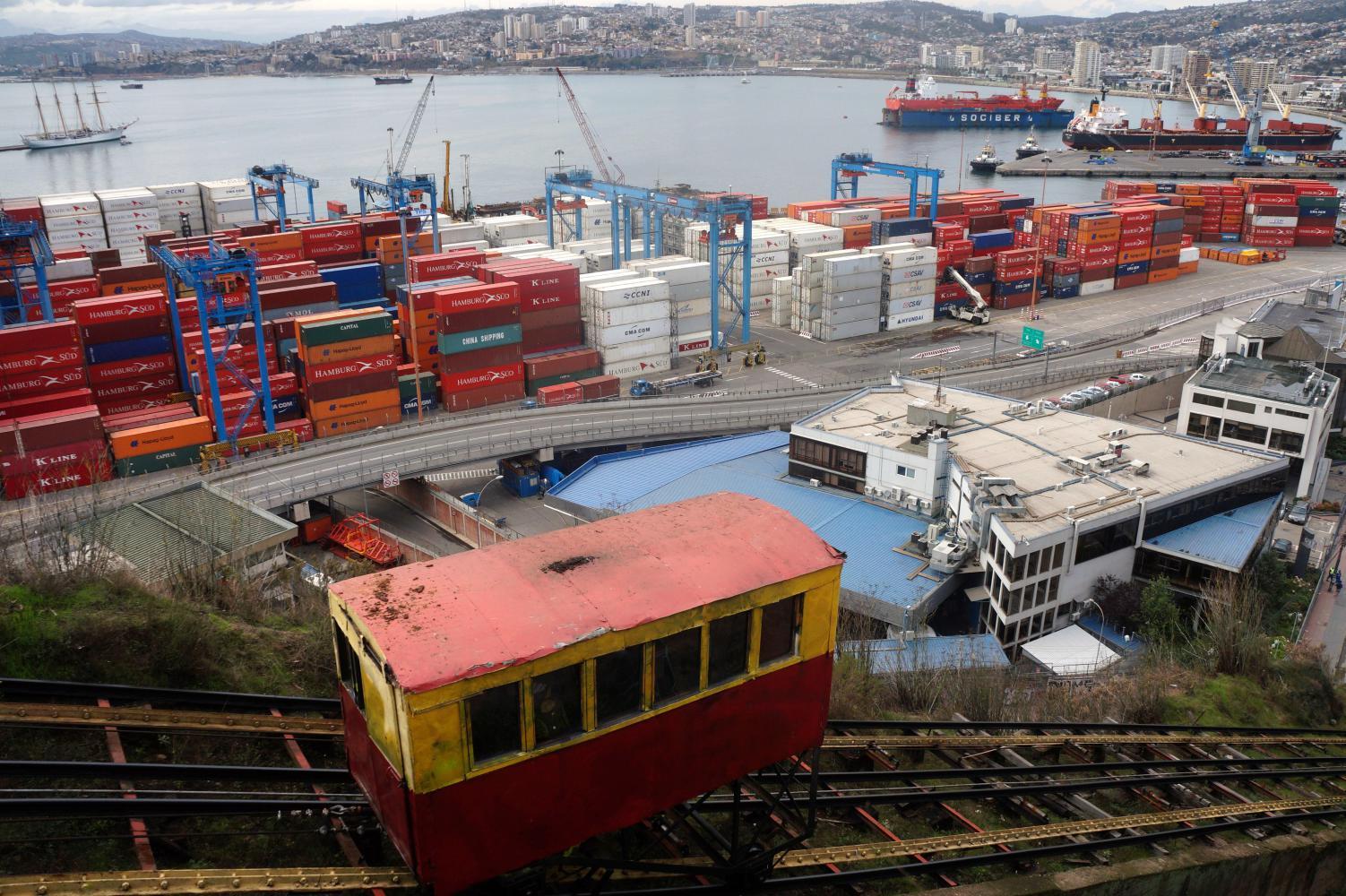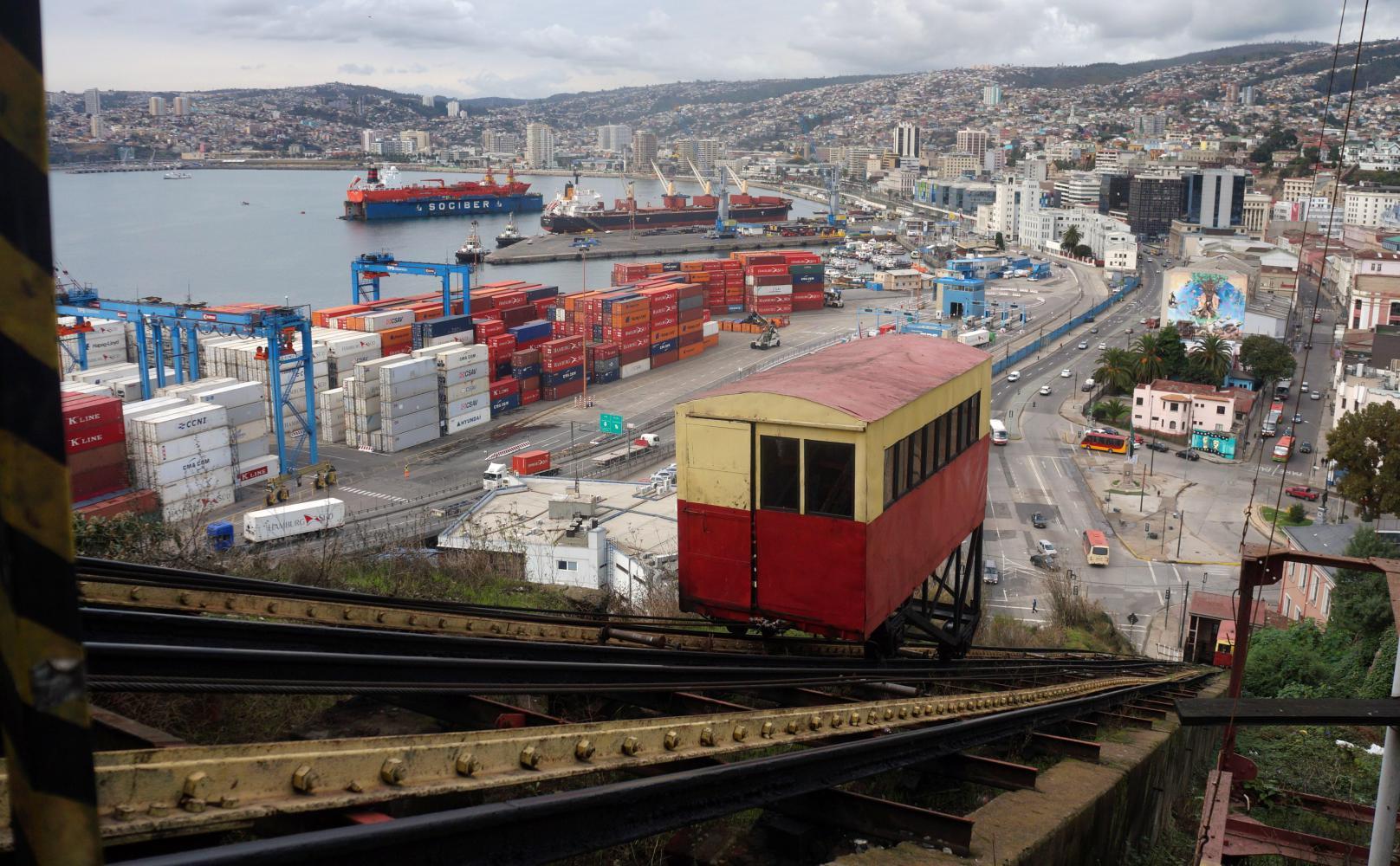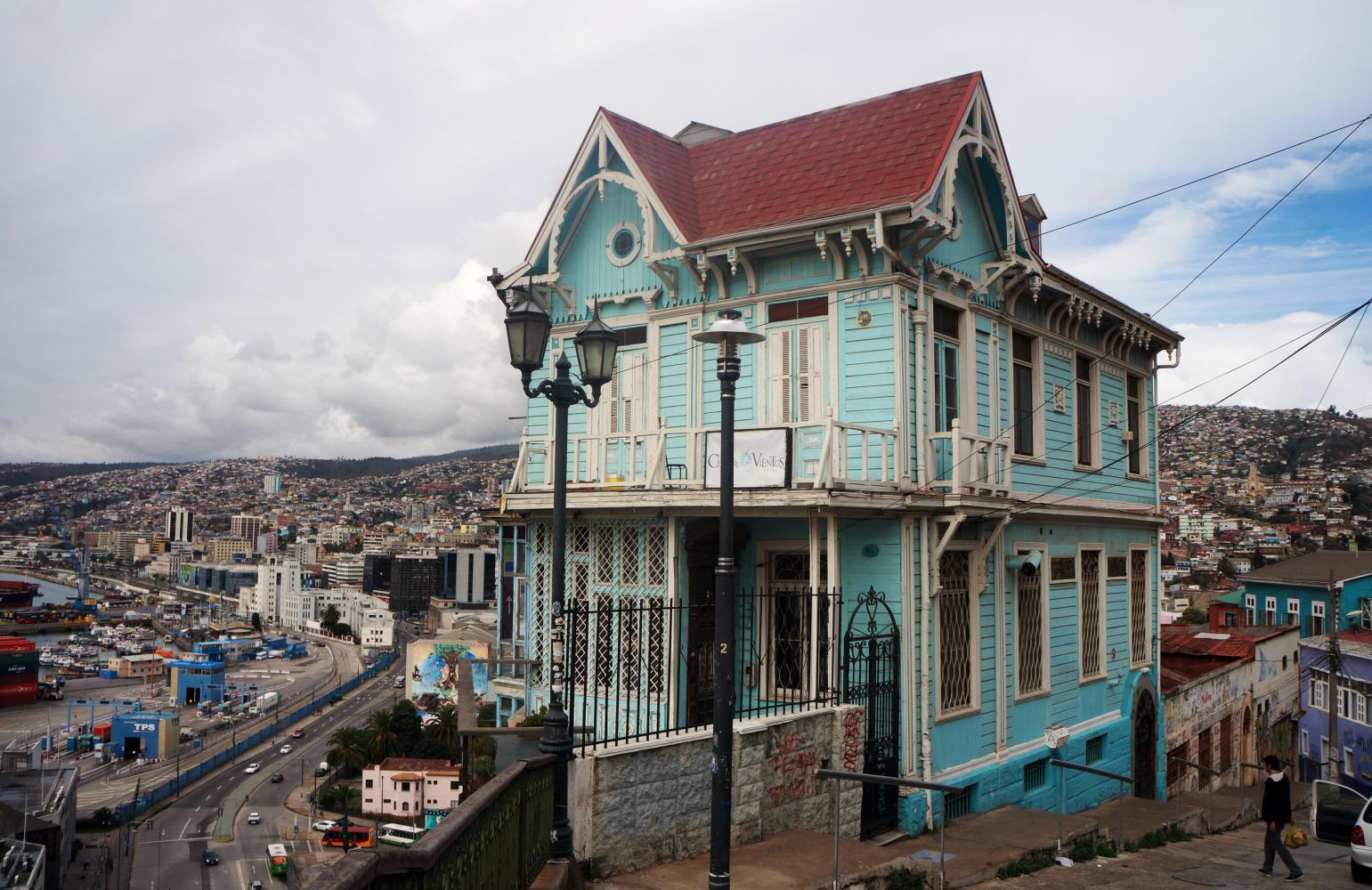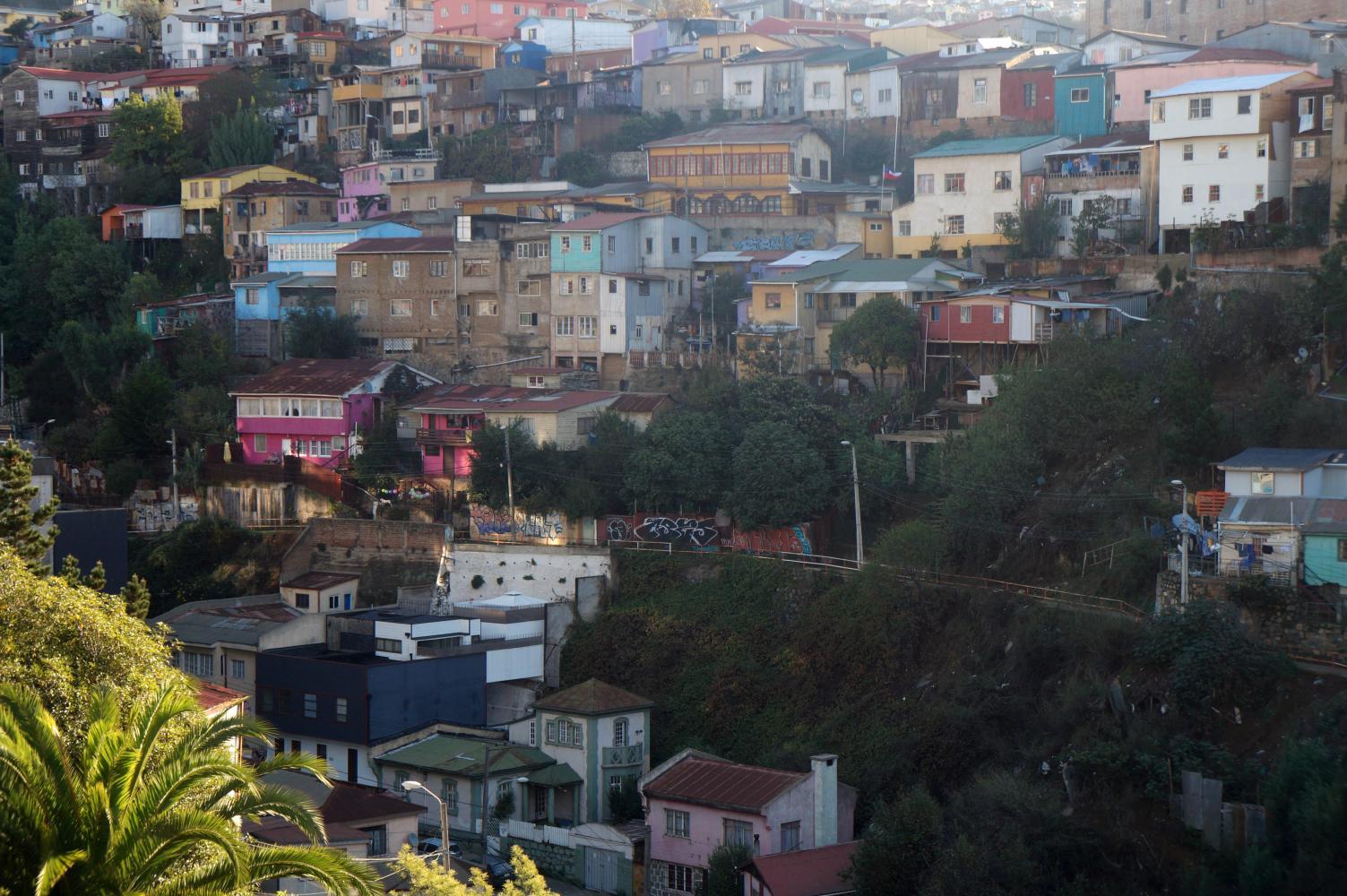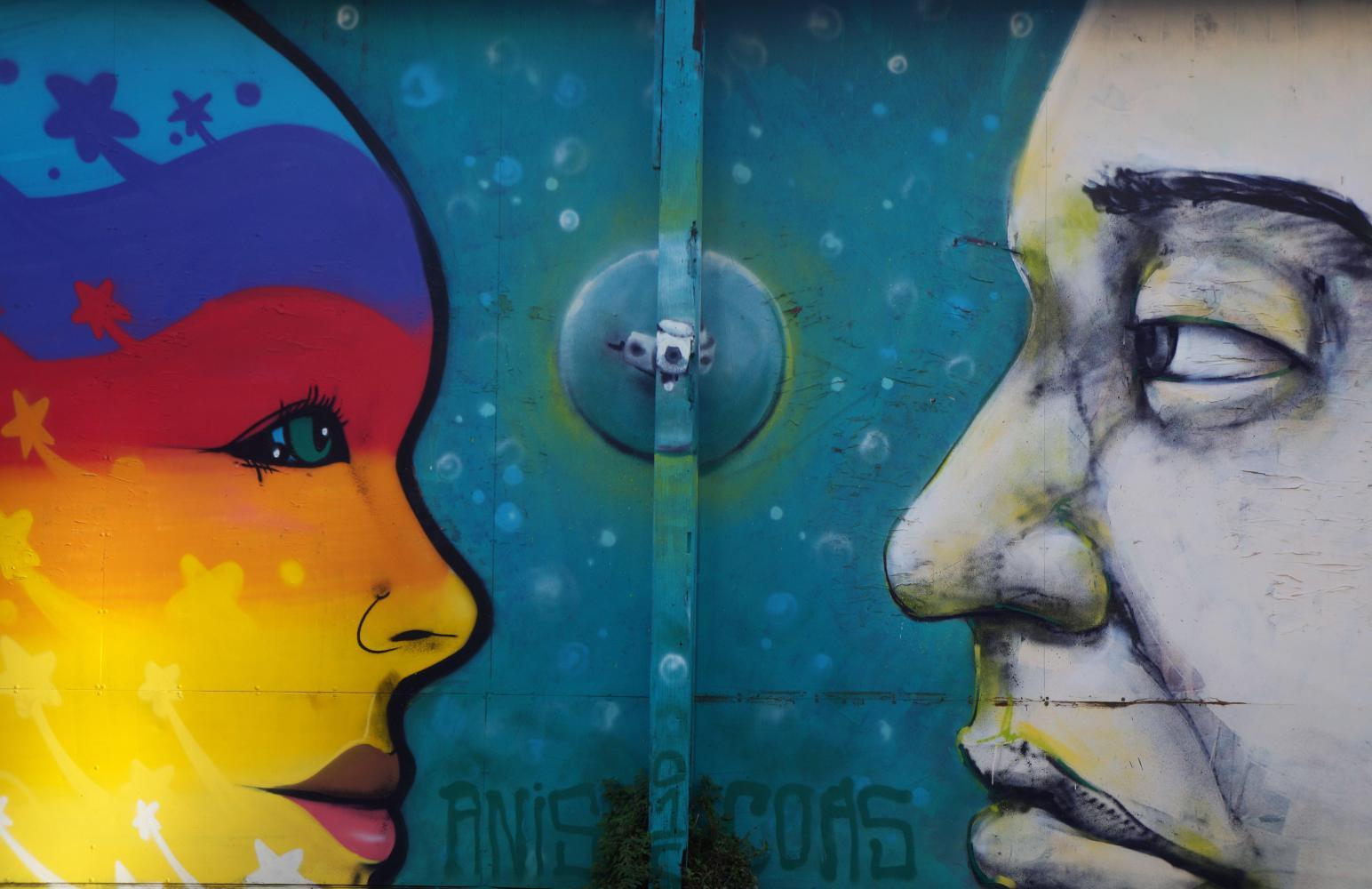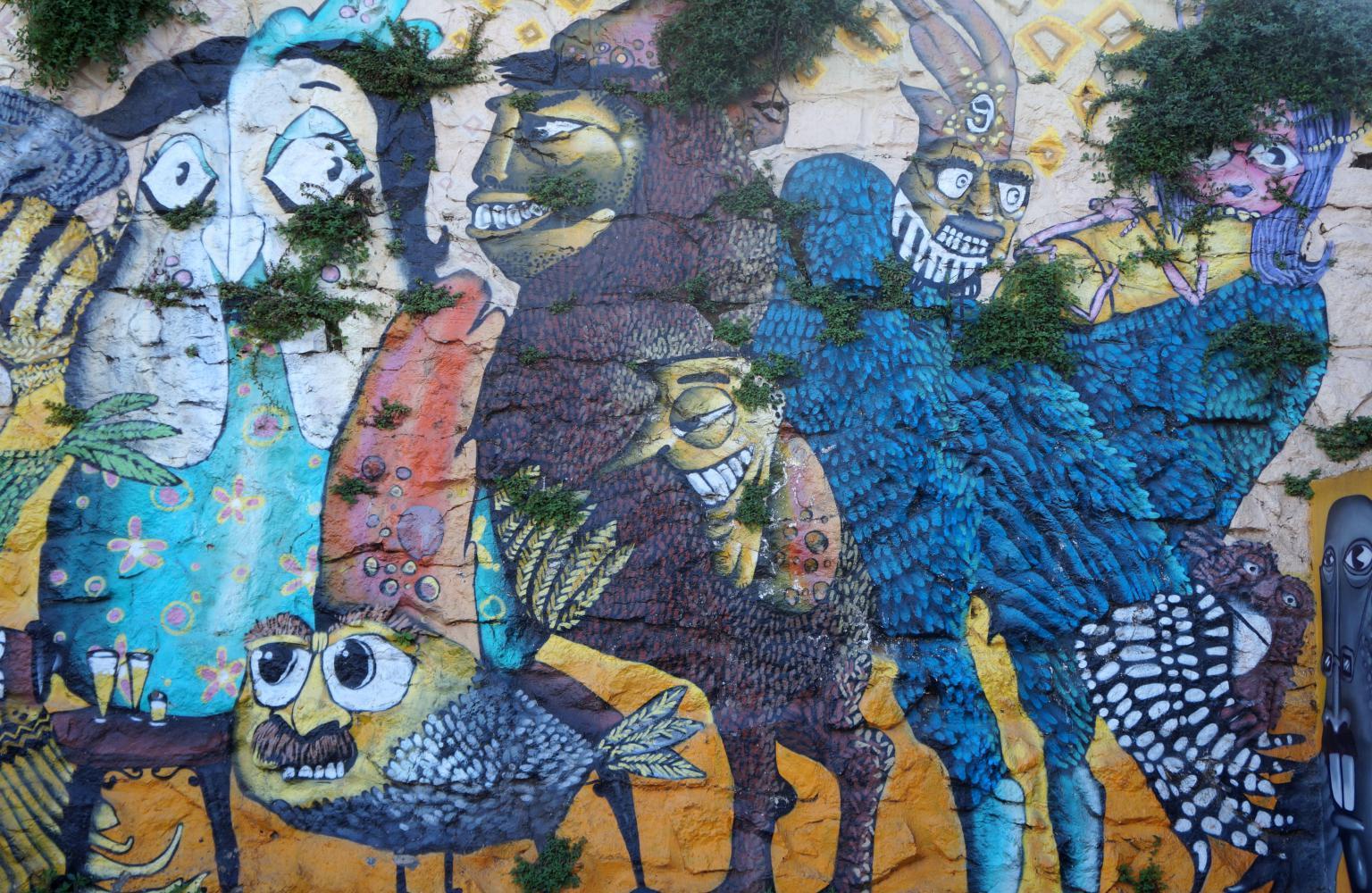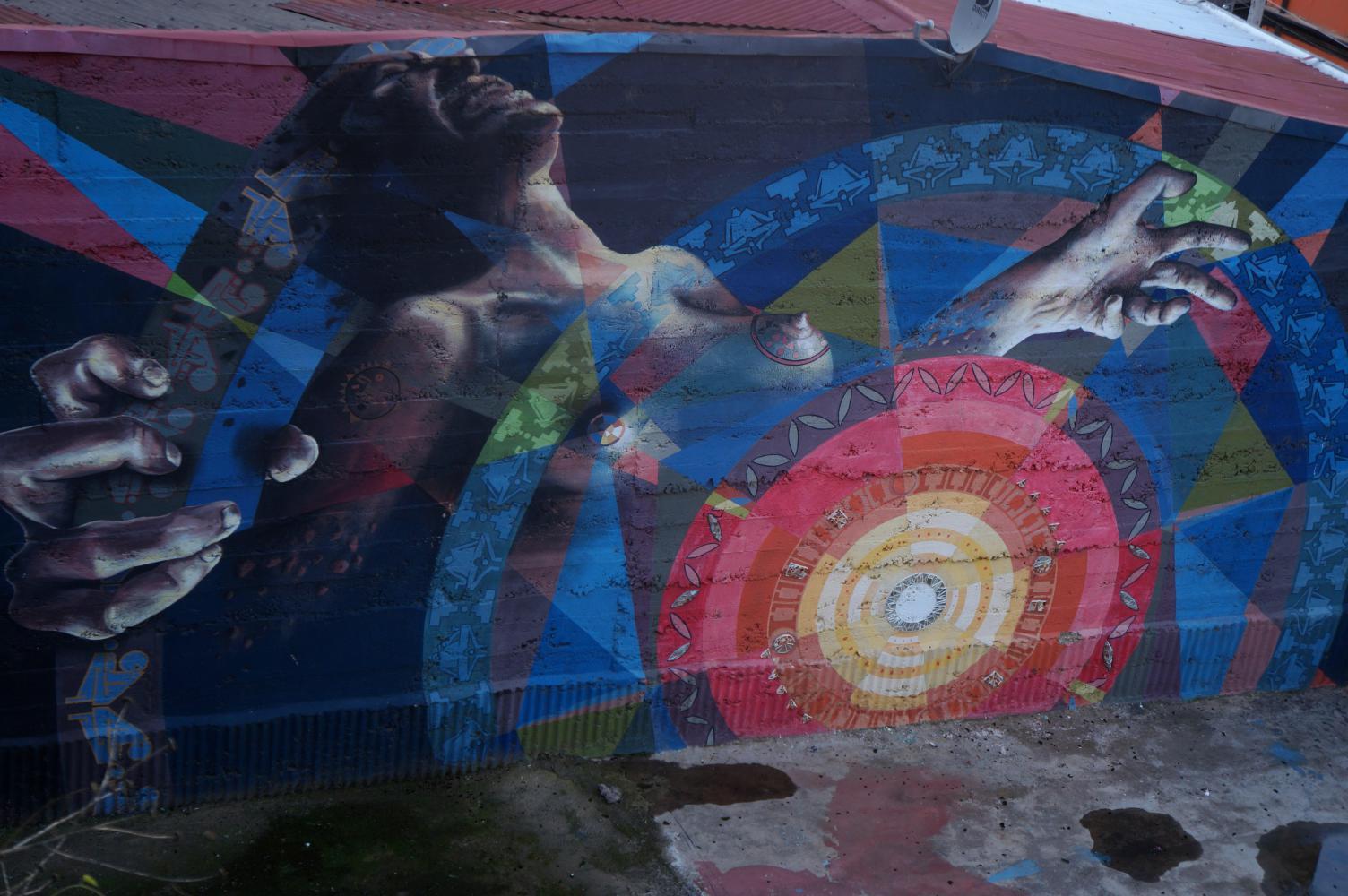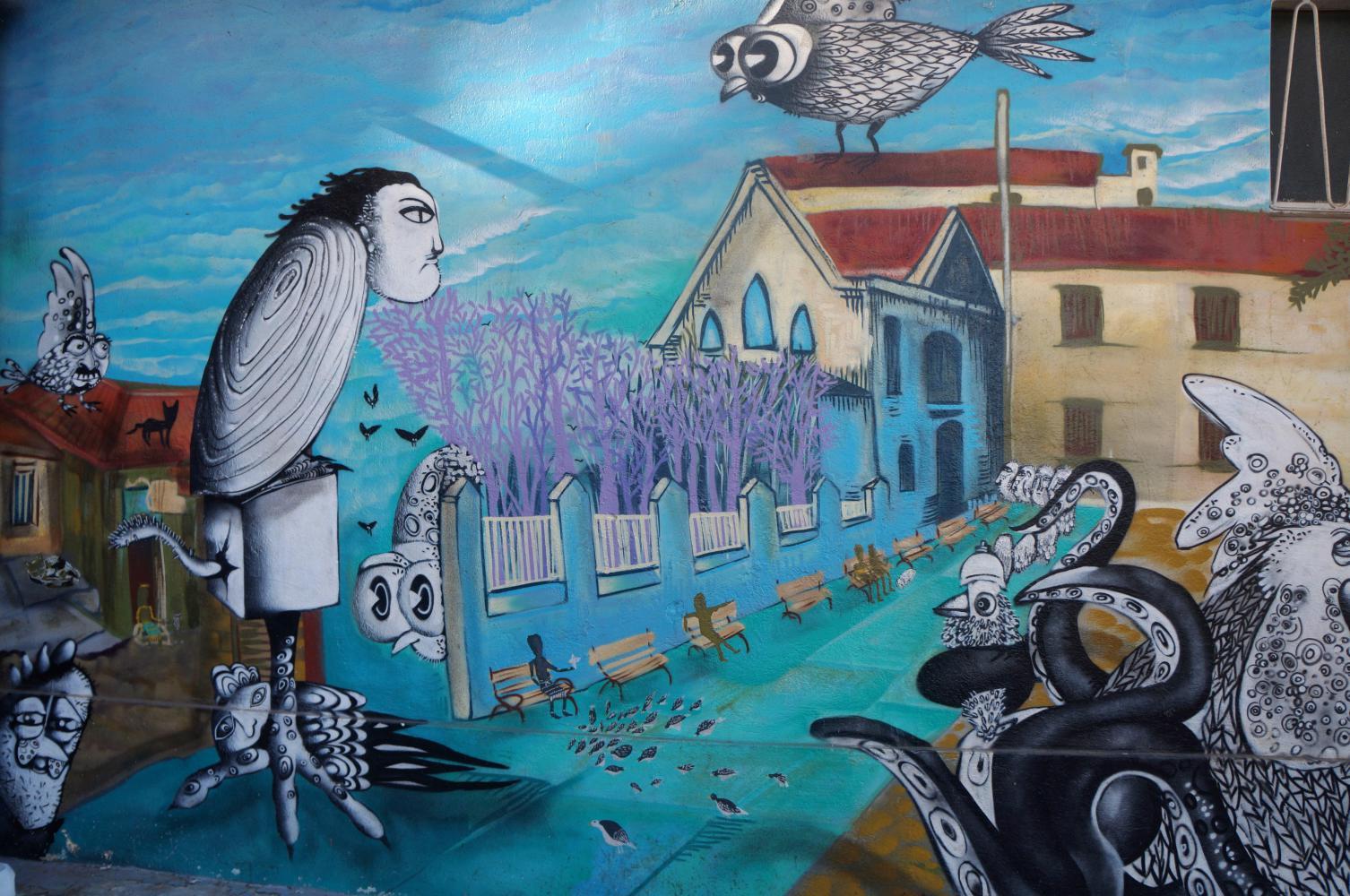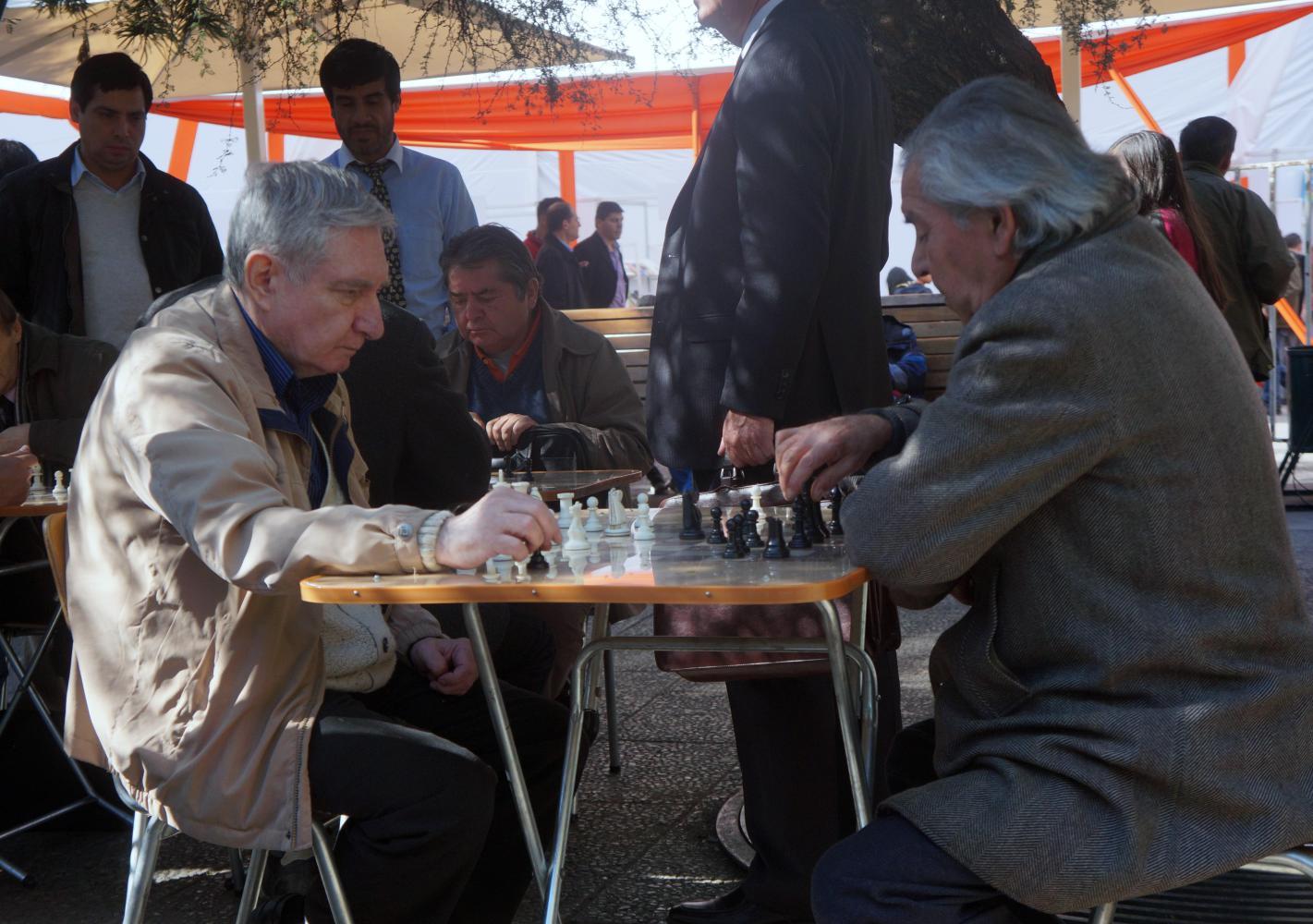April 28, 2016
Walk in Val-poo.
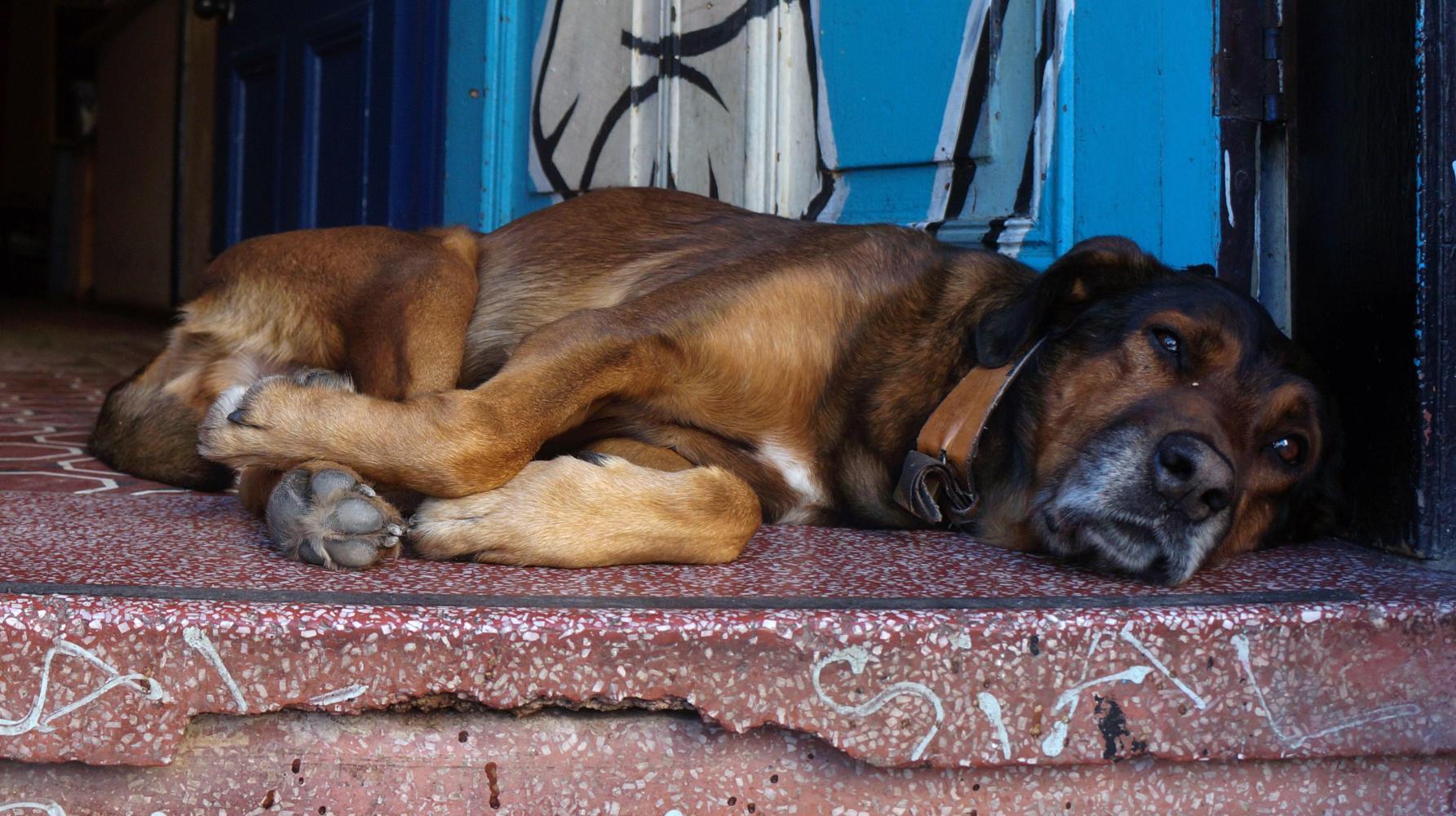
| Heart | 0 | Comment | 0 | Link |
Well, I've been out walking here in Valparaiso, which locals shorten to "Valpo" I misspelt it though, as I think val-poo has a certain poetic ring to it.
By the way, the Spanish word "val" does not mean dog; though, it could well be. There are an awful lot of dogs happily panting as they walk the streets and loafing about in the plaza, all self-employed; that is, through looking cute, people take care of them. Some have really cushy numbers, such as the car bodywork shop dog, who, the workers are always playing with. I will here mention the hostel dog, Bebo. he's stressed. He took me for a walk to show me round the city the first day I arrived. I hope you liked the picture. Anyway, I didn't find the origin of the word "Valparaiso" though, according to the free walking tour guild, Sebastian, it once was called "The Jewel Of The Pacific".
Back in the 1800s, before the Panama Canal opened, Valparaiso was the most important port on the west coast of America. When, for instants, gold was discovered in California, all the ships taking perspective miners there the long sea route round Cape Horn, had to stop in valpo. The business this generated made the city a magnet for entrepreneurial immigrants from Europe. The British, German, French and Italians all moved in and built grand townhouses on the hilltops, of which there are forty-one, rising steeply around the bay. The lesser houses on the steep slopes on the way up the hills are more ragged, appearing to be stacked on top of each other; something the people on the free walking tour thought improbable that they stay up in the event of an earthquake, which is a regular occurrence; however, although the houses look as if they would tumble down during a tremmor, they remain due to a certain elasticity in the construction.
Another aspect to do with the steep hills round the port city, are the "ascensores" funiculars. As the city was built, the municipal decided to make it easy for townspeople to get from the waterfront to the hilltops by building funiculars to the top of all forty-one hills. The first was in operation already in 1883. However, construction was slow. Then in the 1920s, they decided the future lay in cars and construction stopped when only thirty-one hills had funiculars. And over time many of them fell into disuse until the present when only a handful remain in opperation, mainly as a tourist attraction. Something which the city hopes there'll be more of in future, as Valparaiso has just been made a world heritage UNESCO site.
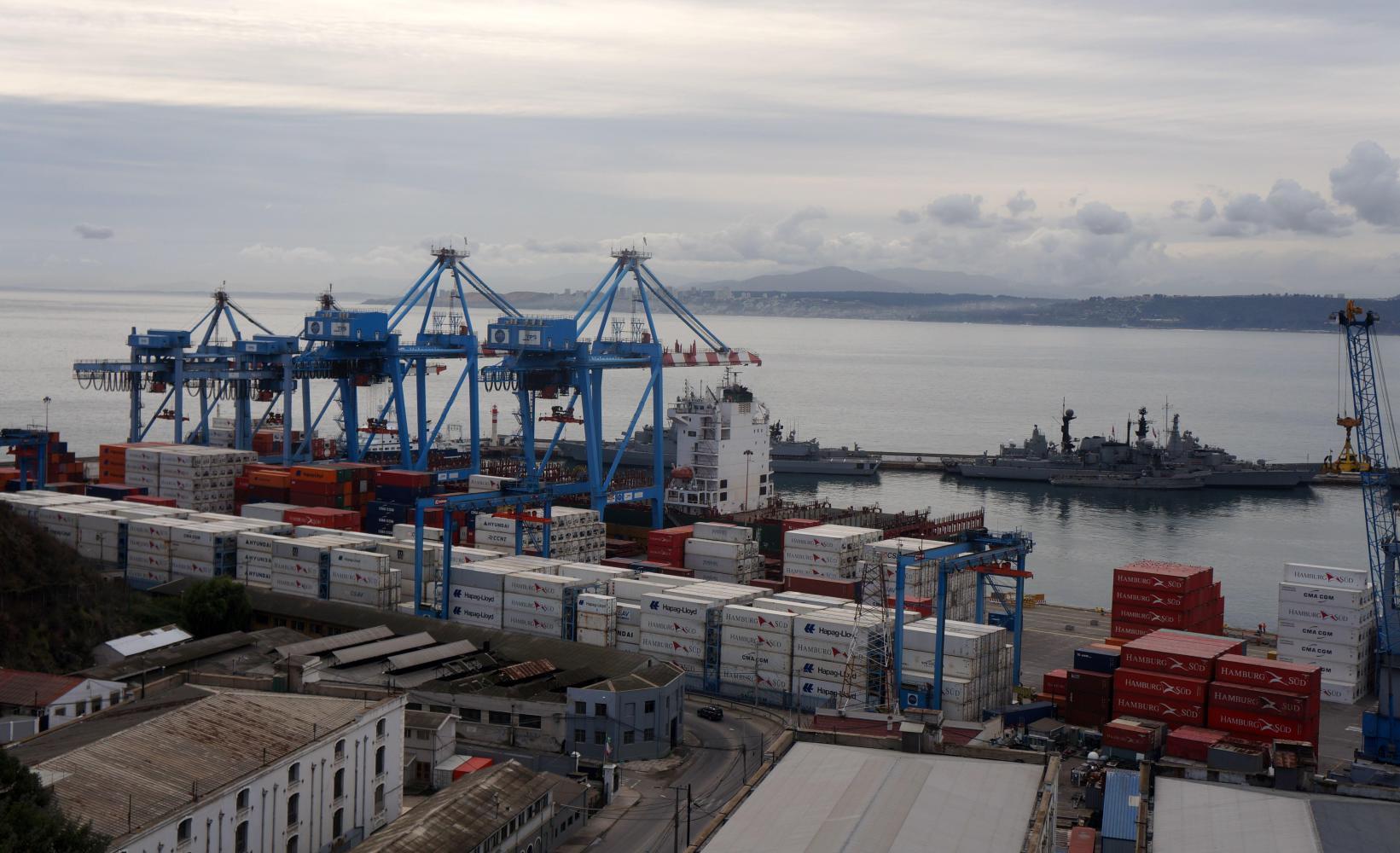
| Heart | 0 | Comment | 0 | Link |
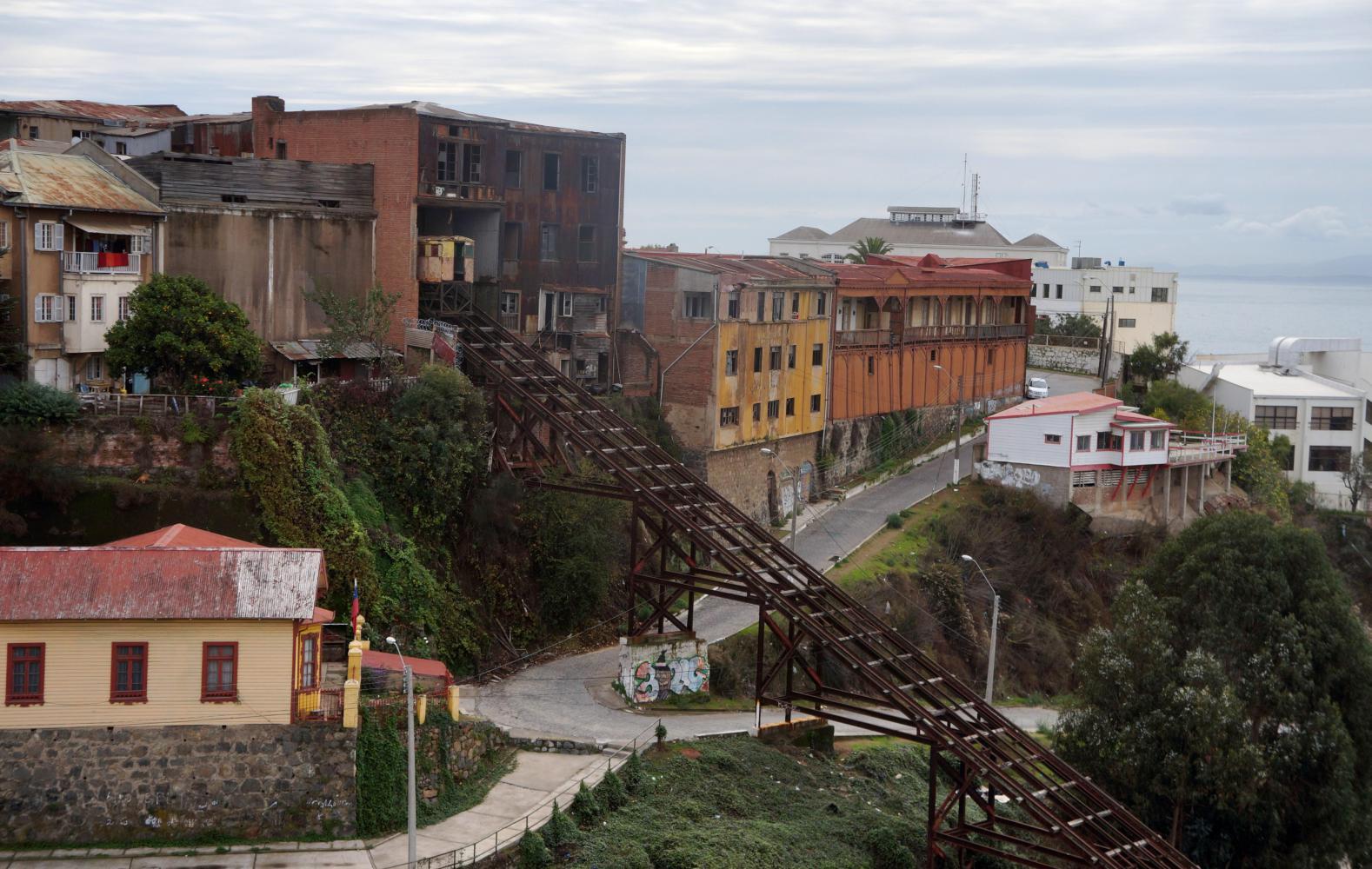
| Heart | 0 | Comment | 0 | Link |
I took a bus for the day to Santiago, 100 kilometres, or a two hour bus journey inland at the foot of the Andes, which it being a cloudless sunny day, are white with fresh snow after all the recent precipitation. The principle reason for going was to buy a new cassette and chain and other miscellaneous bike accessories, easily found in Santiago, as near enough the whole of "San Diego" street opposite the presidential palace, is bike shops. Afterwards I was determined to do some sightseeing by making my way along to the central plaza de Armas, to meet up for another free walking tour.
I arrive with twenty minutes to spare, time for a coffee; but such is the slow service in Chile, that it takes ten minutes to first attract the waiter's attention at the place I sit down at, then I wait and wait. Eventually, it has gone 15.10, the time the tour starts, so I get up and walk away.
We are a small group today, there are only four others and I soon pair up on the walk with a British-Indian woman who works for "The Bank Of America" and has only flown in from London on a short business trip, but has the afternoon off.
Our guild is Felipe Greene, who's great grandfather's great grandfather came from Ireland. A surgeon in the British navy during the Napoleonic wars when he found himself in Chile. Felipe relates that it is written in the history books that a Dr Greene, his ancestor, cured an infecting in the hand of the national hero and man of the time, Bernard O'Higgins.
Santiago is kilometre zero in Chile in more ways than one. Founded by conquistador Pedro Valdivia in 1540. At the time there was the Spanish Inquisition in Peru, which he, having a mistress was frowned upon, so he and mistress and a large band of men under him escaped on a long trek south. His desire was to find the fabled "Eldorado" city of gold. However, half his men and horses perished crossing the Atacama desert. Eventually he come to a lush fertile valley, in which was the furthest south Inca settlement, and decided to found a city. Further south in search of Eldorado, Valdivia met with hostile Indians, the Mapuches, or sons of the earth.
So Chile remained concentrated in the central area in and around the capital Santiago until after independents in the nineteenth century, when under pressure to settle territory they claimed before others would, and simultaneously having defeated the Macpuches, they opened up for European immigration. They offered free land in the south for settlers from Germany used to the cold which they couldn't attract their then population down south to.
We make our way along to the presidential palace, which on the 11th of September 1973 was bombed by the Chilean air force with the then president Salvador Allende inside. There is now a fitting monument outside to the man with the inscription "Tengo fe en Chile y su destinio" I have faith in Chile and her destiny. His final words before he died of a gunshot to the head. The official military version is he committed suicide, but most believe he was shot by troops that stormed the palace after the air strike.
Felipe says "he was a good man, but a dreamer. I truly believe he wanted to reduce the gap between the rich and poor. One of the first things he did when his Popular Party was elected in 1970, was nationalisation of the copper mines in the north. Then came the expropriation of large landowners lands, which caused resentment among the wealthy, leading to plots to cause the Chilean economy to collapse. Soon there were shortages of basics such as bread. And we know now the American CIA where behind the plot and ultimately the military take over."
Our tour continues east through the city park, with the majestic snow clad Andes mountain range beyond the traffic and high-rise blocks of the new financial district, over a bridge across the Mapoche river to the Bellavista district, with its streets of cafes and restaurants, before finishing at the house of Pablo Neruda.
Back in Valparaiso, the following day I had to find a local bike shop in order to remove the old cassette, so I googled and find a "Mike's Bikes" on Avenida Colon, not far away; though, I was glad I went all the way to Santiago, as this shop mainly does street-bikes, BMX and Downhill mountain bikes. Anyway, they didn't have the cassette and chain for my bike. They tell me to return in twenty minutes while they change the old cassette for the new, including fitting the chain. Then as I walk away, a dog that hangs about outside the shop come running after me while barking and bites me in the foot. I remove the sandal and sock and fortunately, find the tooth has not broken the skin. I think the dog just wanted to show me this is his territory, because when I return to the shop, he leaves me alone.
The young mechanic explains that he couldn't fit the chain, because the pin which links the chain up is missing. I tell him that's fine, as all I needed is the cassette changed, not having the tool.
This Shimano pin for linking the chain, I've never understood. I usually disposed of it and fit the chain the old way; i.e. remove a pair of links and join the chain with the pin I've pushed out with the chain tool, pushing it back into place, which is so straightforward. Whereas this loose pin business seems complicated.
I will sign off here, but write that I will perhaps be here for another day, I want to perhaps post some stuff home, write a few postcards and the like before setting off again.
| Rate this entry's writing | Heart | 0 |
| Comment on this entry | Comment | 0 |
